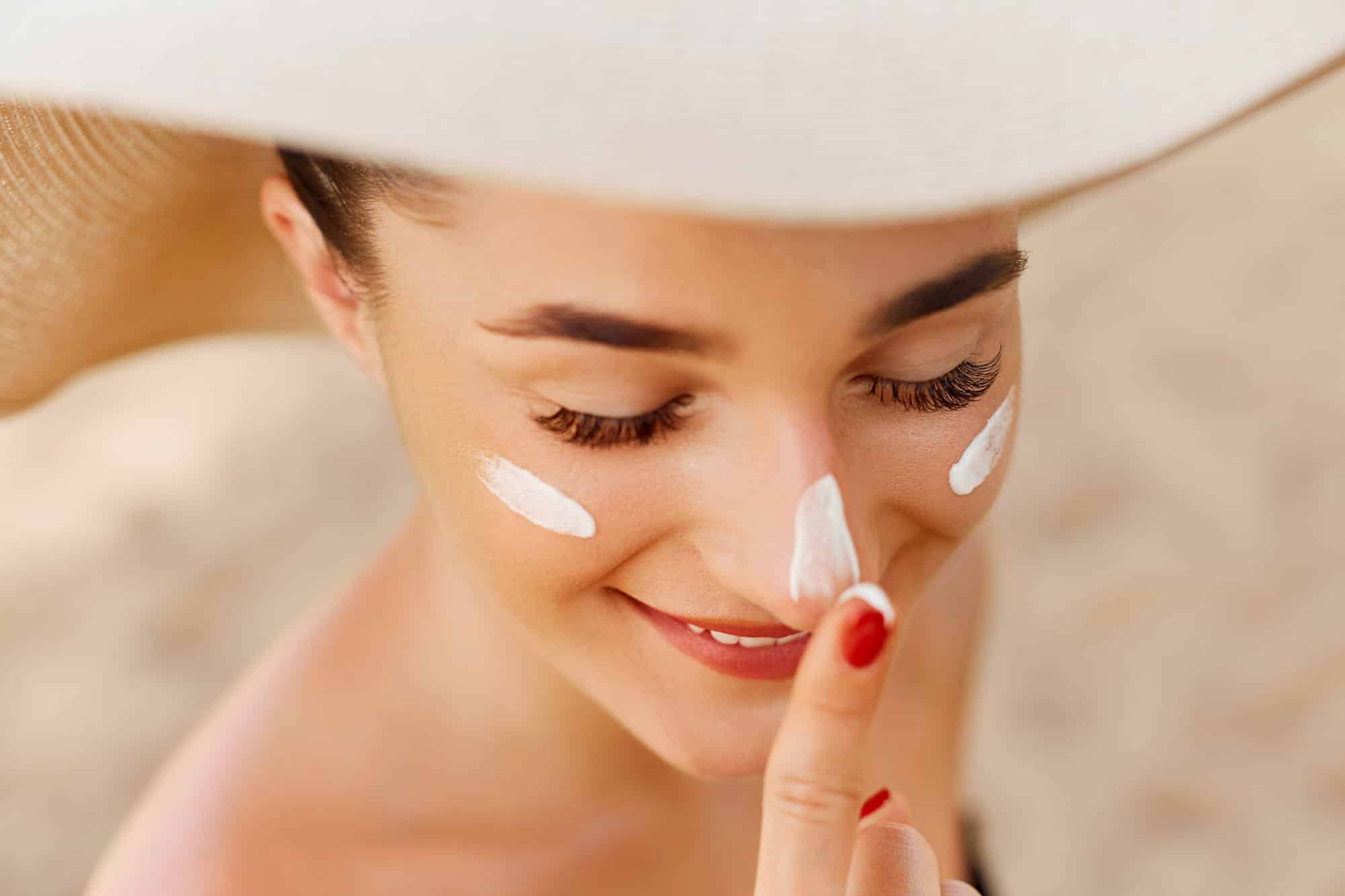The effects of the sun can be devastating for the skin. So if we want to prevent premature aging, avoid spots and various diseases, it is essential to protect the skin from UV radiation. But how do you choose the right sunscreen? The first step is to understand the differences between physical and chemical filters, as well as their advantages and limitations.
If you want to know which type of sunscreen best suits your needs, keep reading. In this Toskani article, we help you make the best decision.
What are physical sunscreens?
Physical sunscreens, also called mineral sunscreens, are composed of inorganic particles of titanium dioxide and zinc oxide. These microparticles act as a natural shield on the surface of the skin, creating a barrier that stops ultraviolet radiation before it penetrates the skin.
How do they work on the skin?
When you apply a sunscreen with physical filters, its micronized particles remain on the outermost layer of the epidermis. There, they reflect and disperse the energy of UVA and UVB rays, preventing them from reaching living cells. This mechanism provides immediate protection from the moment of application, without the need to wait for absorption.
Advantages and disadvantages
Physical filters stand out for their excellent tolerance, making them ideal for sensitive, atopic, or reactive skin. They do not penetrate and rarely cause irritation. In addition, they are very stable in sunlight and respectful of marine ecosystems.
However, their textures can feel denser and traditionally leave a slight whitish tone. Thanks to micronization and the use of mineral pigments, there are now formulas of physical sunscreens with a transparent finish or with a slight makeup tone to even out the skin tone.
What are chemical sunscreens?
Chemical sunscreens are based on organic molecules such as avobenzone, octocrylene, or oxybenzone. Unlike minerals, these substances gently penetrate the surface layer of the skin, where they absorb UV radiation and convert it into heat, which then dissipates without damaging the cells.
How do they work on the skin?
After application, chemical filters migrate to the epidermis and capture incoming UV radiation. When excited by solar energy, they release that energy in the form of heat. To be effective, this type of sunscreen needs a short activation period of 15 to 20 minutes after application.
Advantages and disadvantages
Chemical filters offer very light textures and invisible finishes, blending easily under makeup and making them comfortable for everyday use. They are also very versatile and available in sprays, gels, and fast-absorbing emulsions.
However, they are not usually the best option for very sensitive skin, as they can cause irritation or allergic reactions.
Physical vs. chemical filters: main differences
Although both types provide effective protection against UVA and UVB rays, the main difference between physical and chemical sunscreens lies in their mode of action: physical filters act like a mirror, reflecting the rays on the surface, while chemical filters act like sponges, absorbing and neutralizing them in the outermost layers of the skin.
In terms of tolerance, the difference between physical and chemical sunscreens is that minerals are far superior for delicate skin or post-treatment. In terms of texture, chemical sunscreens tend to feel lighter and more cosmetic, although thanks to the latest advances in cosmetics, this has changed.
Now that you know the difference between physical and chemical sunscreens, choosing your ideal sunscreen depends on your specific needs. If your priority is maximum tolerance and eco-friendly protection, opt for physical filters; if you are looking for lightness and an imperceptible finish, chemical or hybrid combinations may be ideal. In any case, always make sure you choose a broad spectrum SPF 30+ sunscreen and reapply it every two hours or after swimming to maintain continuous protection. At Toskani, you will find professional sunscreens designed to protect your skin in depth. Discover our sunscreen with vitamin D synthesis enhancer, available in spray, stick, and cream formats. This super sunscreen is formulated with the most advanced ingredients to care for all skin types and make them look more luminous, smooth, and hydrated.


